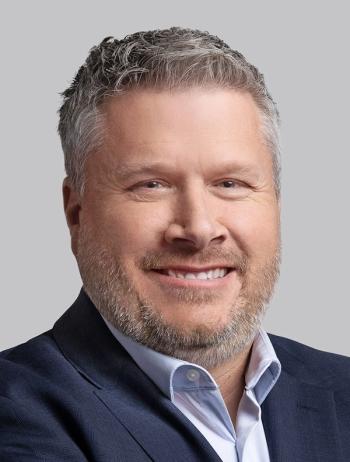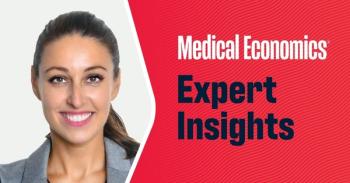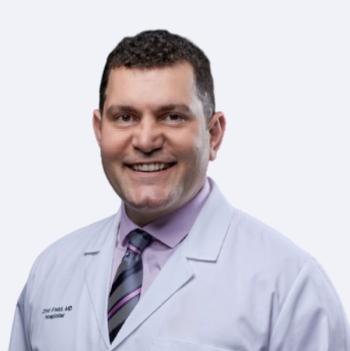
Choosing words wisely can contribute to your bottom line
A recent report in the Journal of the American Medical Association (JAMA) finds that the words physicians use are more important than they might realize. In fact, they could contribute to your economic success and your reputation as a physician.
“I understand.” “Your results are unremarkable.” “Do you have burning chest pain?” A recent report in the
The article points to four word-usage failures that doctors may find alienate, offend or turn patients off, as well as lead to poor decision-making and worse health management for their patients. The four include:
· Using leading questions-“Do you have symptoms such as x, y and z?”
· Saying “I understand” after delivering a serious diagnosis
· Calling patients “poor historians” when they're unable, reluctant or have difficulty reporting their symptoms or medical problems
· Using the words “unremarkable” or “normal” when referring to medical findings or test results
Whether you’re talking about hypertension outcomes, cardiac outcomes after a heart attack, transplant outcomes or adherence to medications, many studies point out that if a patient and a physician have a good interaction-building rapport and trust-patients have a better medical outcome, says Stephen Parodi, MD, chairman of the Council of Accountable Physician Practices (CAPP), a coalition of some of the nation’s largest and most progressive multi-specialty medical groups, and an infectious disease physician with The Permanente Medical Group in Napa, Calif.
The importance of Semantic Precision
A doctor’s word use reflects the clarity (or clumsiness) of his or her thinking and decision-making.
Other word use fails doctors have made, besides using complex medical jargon, include calling women “girls” and telling patients “it’s all in their head.”
In monitoring the viral load of patients with HIV, Parodi says he’s careful about using jargon like “undetected level of the virus,” explaining that the patient is not cured or no longer has HIV but that their medications are working and the test cannot detect the virus in their bloodstream. “What words we use here matter,” says Parodi.
Emergency physicians have to be especially careful in choosing words. They also often have cultural and educational barriers to overcome. “I actually never tell a patient that their results are ‘normal,’ says Kimberly Brown, MD, MPH, an emergency physician in Memphis, Tenn. “If a patient comes in for chest pain, and I’m explaining their chest X-ray results, I say, ‘I see that your lungs look great, there is no pneumonia, there is no collapse of your lungs and no broken ribs.’” Providing patients with the specifics helps them understand why tests are ordered and what their results really mean.
“In my psychiatric practice, when patients talk about having “family issues” or “anger issues,” I know they don’t really understand what they have been told about their emotional/behavioral problems,” says Mary Davis, MD, a psychiatrist in Lancaster, Penn. Likewise, when Davis introduces herself to kids, she always tells them she talks with kids not to kids. Kids think “talking to” means lecturing. “It’s a really small thing but sometimes those small things make a difference,” says Davis.
Isn’t this Just Bedside Manner?
While Davis, who went to medical school in the late 1970s, never took any courses on communicating well with patients, today, physicians are becoming much more aware of the link between good communication, rapport, trust and good patient medical outcomes.
Parodi explains that CAPP members ensure physicians have access and get training on this emerging science. For example, The Permanente Medical Group employs a program called The Four Habits Model. Every new physician goes through training where they learn about the four different habits of investing in the patient interaction.
1. Creating rapport (listening to concerns)
2. Exploring the medical problem’s impact on the patient’s life (limiting work, activities)
3. Demonstrating empathy
4. Understanding your own emotional responses
Cleveland Clinic has a patient care experience called HEART, which stands for hearing, empathizing, apologizing, responding and thanking. While some physicians have more natural aptitude communicating just as others have an easy bedside manner, more and more healthcare organizations are investing in programs so it’s not left to chance that someone is effective or not at communications. Davis says you often learn though your mistakes.
“It’s significantly more satisfying for the patient and the physician if the interactions are positive, meaningful and productive,” says Parodi. “It goes to our calling, why did most of us go into medicine in the first place-to help people.”
Effective Communication = Economic Health of a Physician/Practice
Concentrating on semantic precision can spell a successful bottom line in the economic health of your medical practice. A physician’s reputational impact, or the potential for referrals from both patients and physicians can be directly affected by stellar or poor communications.
Increasingly, communication and by default word precision, is becoming an area that is measured so it’s no longer just word of mouth. “I get reports now regarding physician-patient interactions and also nurse-patient interactions, and we can actually compare ourselves to other institutions in the country,” says Parodi.
Hospitals, physician groups and even Medicare are looking at and rating patient satisfaction scores so it can not only be critical from a physician’s reputational impact but from a reimbursement perspective.
A physician who doesn’t practice semantic precision, uses poor word choice, complex medical jargon or displays lack of empathy may lose patients, find less referrals, have a lower word-of-mouth reputational impact, and consequently, hurt the economic health of their practice or hospital as patients and healthcare organizations demand more.
The care experience and the doctor-patient interaction is part and parcel of the economic health of a physician’s practice.
Newsletter
Stay informed and empowered with Medical Economics enewsletter, delivering expert insights, financial strategies, practice management tips and technology trends — tailored for today’s physicians.






